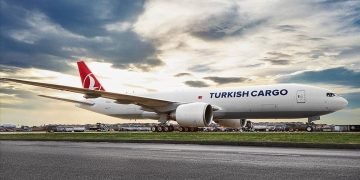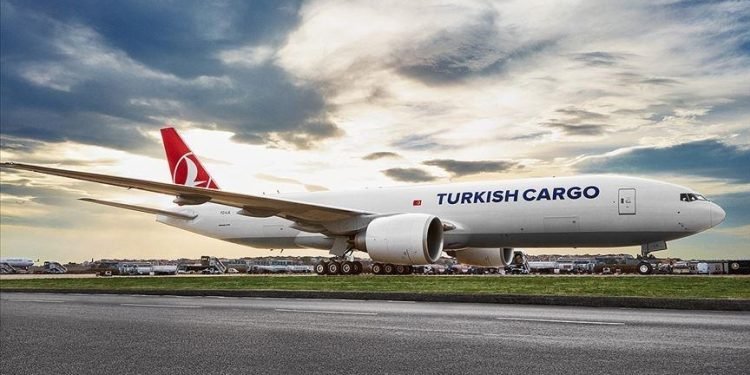By Eva Richardson
March 4, 2025 – The Logistic News
Turkish Cargo, the air freight division of Turkish Airlines, has shattered industry forecasts by achieving a remarkable 35% revenue increase, positioning itself as one of the fastest-growing cargo carriers globally. This exclusive report delves into the strategic moves behind this unprecedented success and what it means for the future of air logistics.
A Strategic Expansion That Pays Off
With the global air cargo market facing volatile fuel prices, economic uncertainties, and supply chain disruptions, Turkish Cargo has defied the odds by expanding its network and leveraging Istanbul’s strategic location as a central logistics hub. Over the past year, the airline has:
- Expanded its freighter fleet with new aircraft acquisitions.
- Added key trade routes to high-demand regions, including North America, Asia, and Africa.
- Enhanced digital logistics capabilities to optimize cargo tracking and streamline booking systems.
Technology and Innovation: The Game Changers
Beyond its physical expansion, Turkish Cargo has invested heavily in cutting-edge logistics technology to improve efficiency and customer satisfaction. The company’s AI-driven cargo management system allows real-time tracking, predictive maintenance, and automated capacity allocation, ensuring faster and more reliable freight movement.
“The future of air cargo is digital,” said a Turkish Cargo spokesperson in an exclusive statement to The Logistic News. “We are investing in smart logistics solutions to enhance operational efficiency and sustainability, ensuring seamless service for our global customers.”
Industry-Wide Impact and Competitive Edge
Turkish Cargo’s rapid growth is reshaping the competitive landscape of global logistics. Industry analysts highlight the company’s strategic agility as a key factor in outperforming its rivals. With Istanbul as a major transit hub, the carrier benefits from reduced transit times, lower operational costs, and increased connectivity across continents.
“This level of growth in a challenging market is a testament to Turkish Cargo’s vision and adaptability,” said Glyn Hughes, Director General of The International Air Cargo Association (TIACA). “Their commitment to expansion, digitalization, and sustainability is setting a new benchmark for air freight operators worldwide.”
Challenges and Future Outlook
Despite this success, Turkish Cargo faces industry challenges, including regulatory changes, fluctuating fuel costs, and increasing competition. However, the company remains focused on future growth, with plans to:
- Invest in sustainable aviation fuels (SAF) to reduce carbon emissions.
- Further expand its global network to emerging markets.
- Strengthen partnerships with leading logistics firms to enhance service offerings.
With this record-breaking revenue increase, Turkish Cargo is solidifying its position as a leader in the air cargo sector. As the logistics industry continues to evolve, the company’s innovative approach and strategic foresight will be critical in shaping the future of global trade.
For more exclusive updates on the latest trends in air logistics, stay tuned to The Logistic News.























